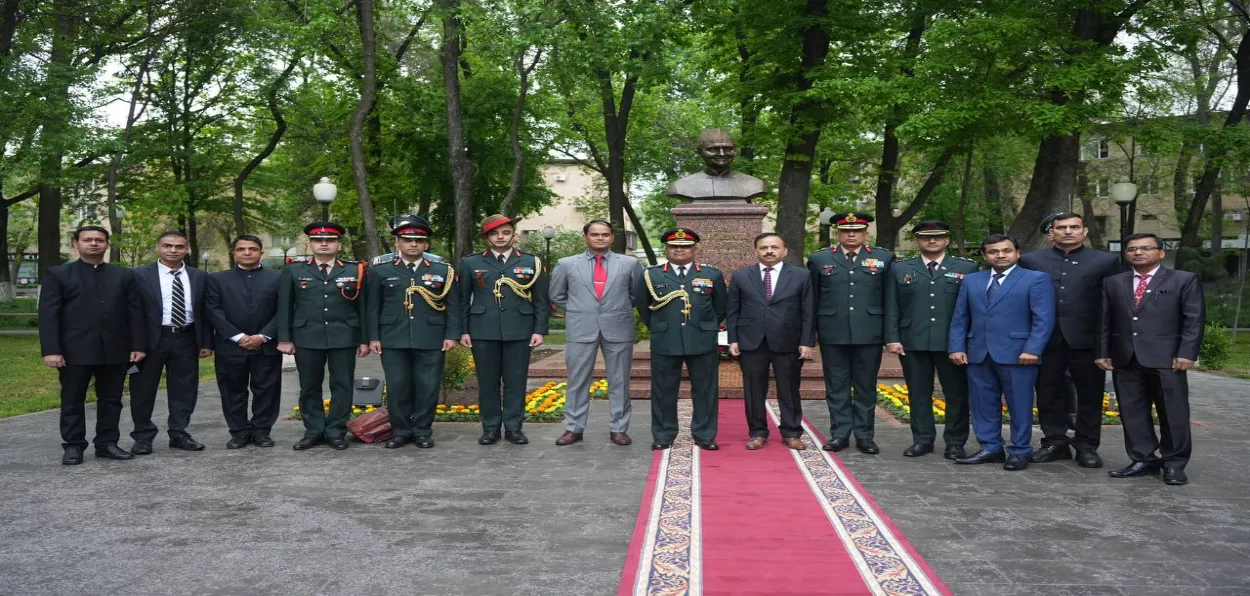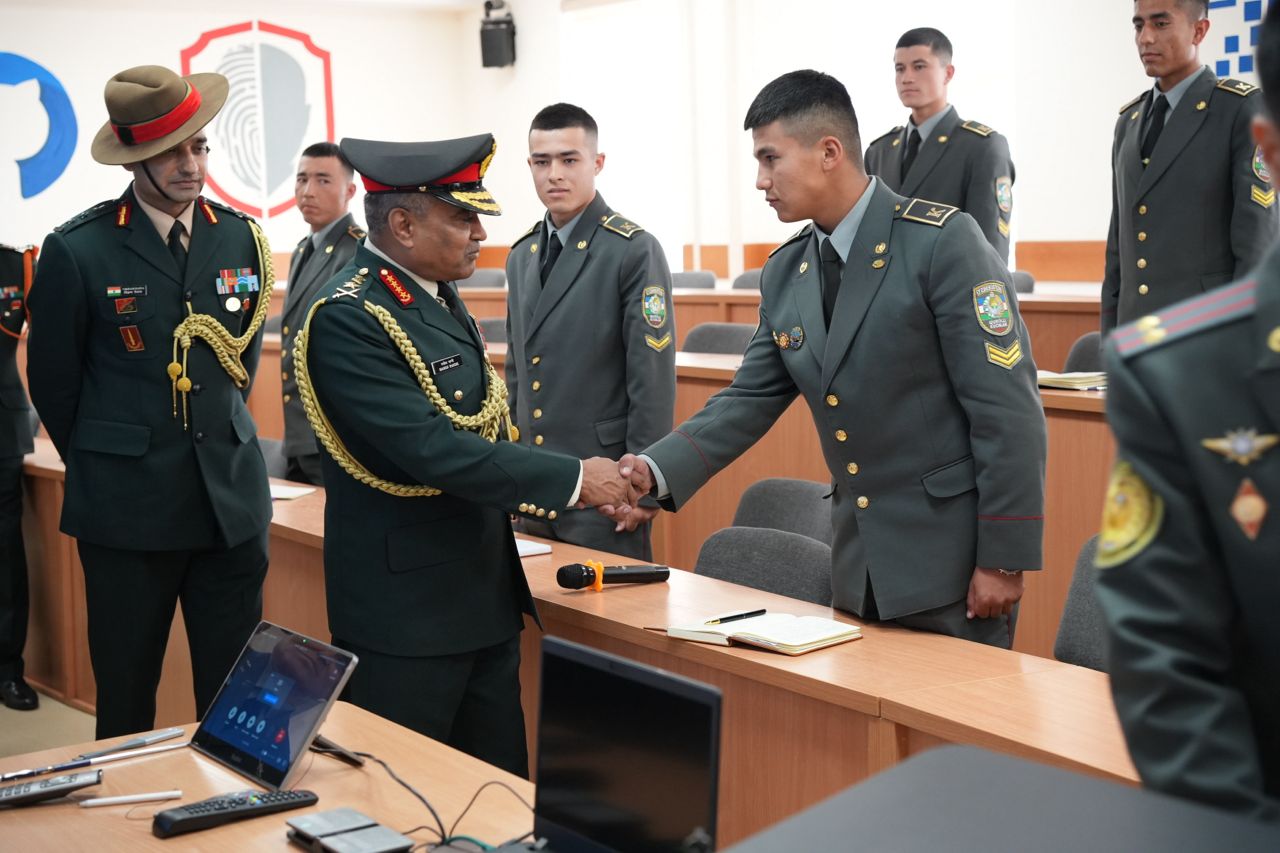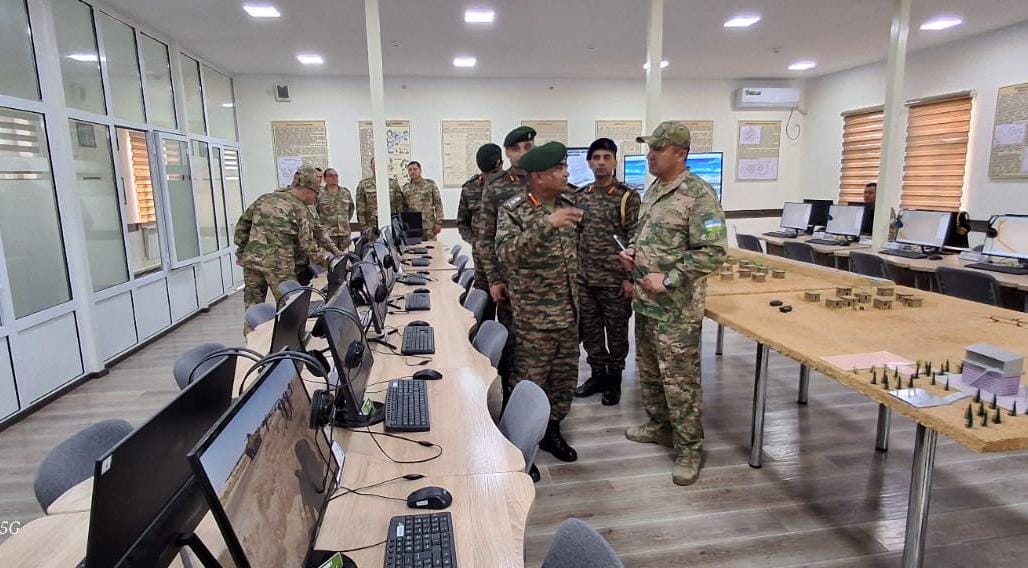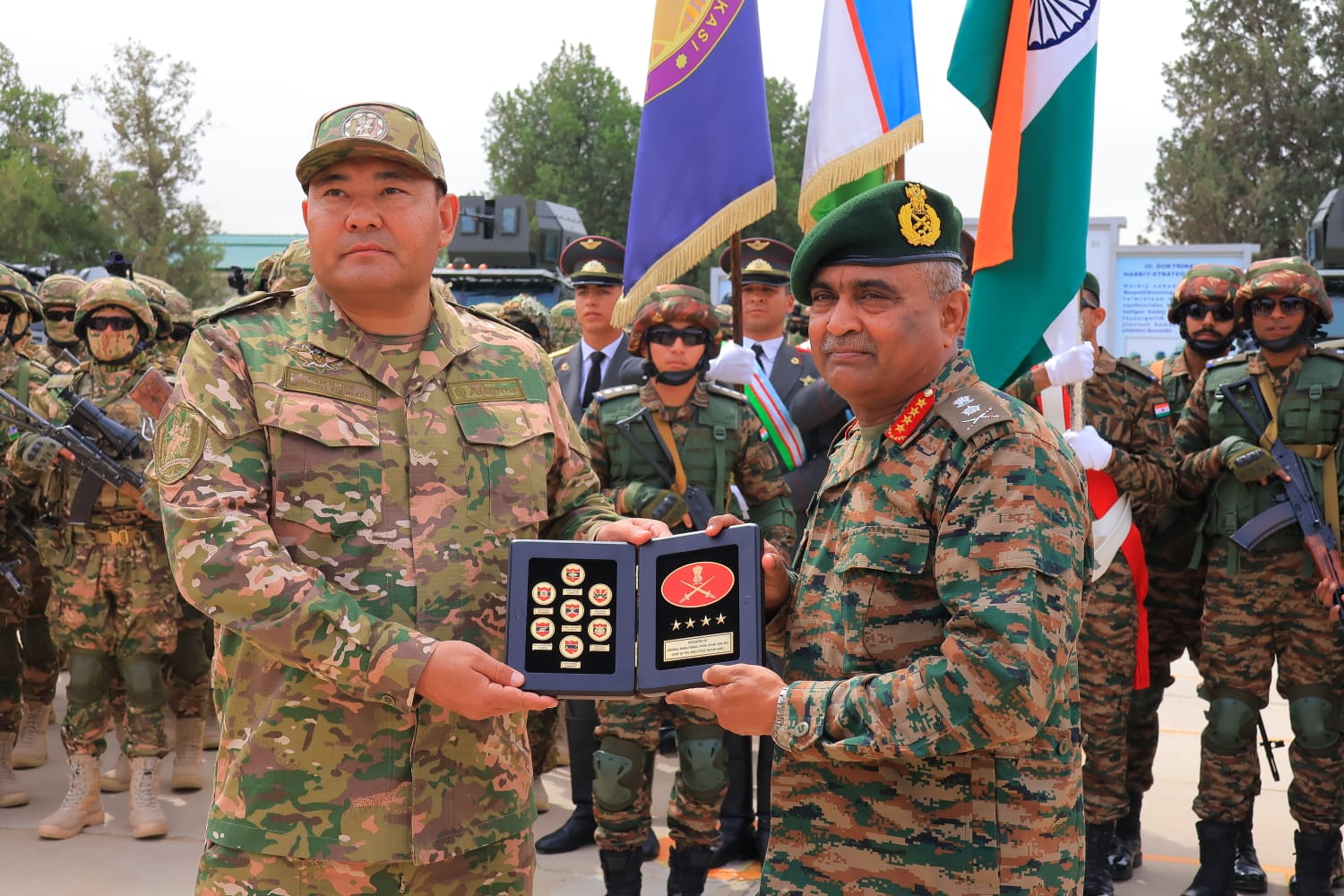
Aditi Bhaduri
India-Uzbekistan defense relations have received a major boost with the Inauguration of an IT Laboratory at the Uzbek Academy of Armed Forces by Army Chief Gen Manoj Pande. The laboratory is a state-of-the-art IT facility that includes two lecture halls, a cutting-edge cyber security lab, a hardware programming lab, an object-oriented programming lab, a web programming lab, a server room, a multimedia room, and a virtual reality room. Additional facilities include videoconferencing terminals, interactive panels, networking devices, and an assortment of computing equipment comprising a large number of high-end PCs, workstations, and laptops, alongside essential peripherals such as printers, cameras, scanners, and storage devices.
Indian Army sources have called it a "significant milestone" in defence cooperation between the two nations, following a commitment made during the meeting of Defence Ministers of both sides in September 2018.
Gen Pande was on an official visit to Uzbekistan from April 15 to 18 to explore new avenues of bilateral military collaboration. During his visit, he held wide-ranging talks with the top military brass of the Central Asian nation besides visiting several defence establishments.
Uzbekistan is the second largest state in the Central Asian region that has been identified as a strategically important region for India, located as it is between giants Russia and China, as well as bordering troubled pots like Afghanistan and Iran, besides being part of India's extended neighborhood. During his first tenure, Prime Minister Narendra Modi had prioritized deepening India's ties with the region as part of its Connect Central Asia policy.
 General Manoj Pande interacting with Uzbek officials at the lab
General Manoj Pande interacting with Uzbek officials at the lab
The state visit by President Shavkat Mirziyoyev to India in October 2018, which resulted in the signing of 20 documents on cooperation in various areas, opened a new page in bilateral relations. The President’s visit to India in January 2019 to participate in the “Vibrant Gujarat” global investment summit as a Chief guest further confirmed Uzbekistan's desire to intensify cooperation with India.
A virtual summit between the President of Uzbekistan and the Prime Minister of India was held in December 2020. Within its framework, a “Joint Statement on Close Friendship and Strong Partnership” was adopted and 9 documents on cooperation in different priority areas were signed.
While Covid-19 disrupted ongoing bilateral exchanges, nevertheless regular dialogue at the level of governments, parliaments, and ministries has continued. India initiated the India-Central Asia Dialogue at the level of Foreign Ministers in 2019 and convened the first India-Central Asia summit in 2022. As part of the Dialogue, the India-Central Asia Business Council was established in New Delhi in February 2020. It will be convened this year again in Uzbekistan.
And it was in 2019 that both countries held their first joint military exercises codenamed "Dustlik " of "Friendship". These drills, held alternately in India and Uzbekistan, have now moved into their fifth year and are currently underway in the Termez region in southern Uzbekistan.
 Army Chief Gen Manoj Pande inspecting the laboratory
Army Chief Gen Manoj Pande inspecting the laboratory
The visit of General Pande against the backdrop of these drills comes at an opportune moment. While Indo-Uzbek ties have been growing dynamically, India's preoccupation with its premiership of the G20 and then the elections may have relegated its engagement with the Central Asian region a little to the side. The visit, however, has reinvigorated this engagement.
General Pande interacted with Major General Khalmukhamedov Shukhrat Gayratjanovich, First Deputy Minister of Defence and Chief of the General Staff (CGS) of the Armed Forces of Uzbekistan, discussing key aspects of strengthening military cooperation between both armies. Besides, he met a host of high-ranking military leaders, visited the Uzbek military-industrial complex, and witnessed the joint India-Uzbekistan military drills that took place in Termez in the south of the country.
"The visit by General Pande aims at strengthening military cooperation between India and Uzbekistan besides exploring new avenues of collaboration between the two nations," the Indian Army said in a statement.
The visit comes at a significant time. The site of the Dustlik exercises - the fifth in the annual series - Termez region may not be coincidental. It lies along Uzbekistan's border with Afghanistan and is the main border crossing between the two landlocked states. As a frontline state with Afghanistan, Uzbekistan is vulnerable to events there.
It is the one state which, it may not be inaccurate to say, was most negatively affected by the Afghan jihad. Sharing linguistic, religious, and cultural affinities with Afghanistan's Uzbek population, it felt firsthand the heat of the jihad when groups like the Islamic Movement of Uzbekistan (now morphed into the Islamic Movement of Turkestan) formed under the impact of the jihad returned to Uzbekistan to wage war to overthrew the government and establish a state run on sharia law.
 Army Chief Gen Manoj Pande during the joint India-uzbekistan Military excersises
Army Chief Gen Manoj Pande during the joint India-uzbekistan Military excersises
Uzbekistan itself, under successive governments, has been preserved as a secular plural state. Yet, it is also a state with a great Islamic heritage and a medieval center of Islamic learning. As such it is also susceptible to the threat of religious radicalisation and extremism. The rise of the Islamic State of Iraq and Syria (ISIS) saw many Uzbeks, including entire families with women and children, join ISIS. Uzbekistan has thus had to fight a long hard battle with religious extremism and terrorism which is why it is not surprising that one of the main organs of the Shanghai Cooperation Organization (SCO) of which both India and Uzbekistan are members, Regional Anti-Terrorism Structure (RATS) is located in Tashkent, the Uzbek capital.
The threat, however, remains. While ISIS has been decimated in Iraq and Syria, its new avatar the ISIS-KP has risen in Afghanistan. How dangerous an organization is can be evidenced by looking at the recent terrorist attacks in Moscow and earlier in Iran. This places Uzbekistan in a vulnerable position, while it also poses a huge threat to India. In 2022, the Russian authorities arrested an Uzbek national in Moscow, who was a member of the ISIS-KP and was planning to travel to India to carry out terrorist attacks.
That is why, Tashkent, along with other regional powers concluded early on that the Taliban were less evil than ISIS-KP and were the ones who could effectively route the latter. As such Tashkent has been cultivating ties with the Taliban, seeing it as part of the solution to Afghanistan's decades-long troubles, even before the Doha Agreements between the US and the Taliban were reached. Uzbekistan organized the first-ever intra-Afghan dialogue on its territory.
Thus, with the ascendance of the Taliban in Kabul, ties with Tashkent acquire even greater salience. Uzbekistan can and is playing a significant role in stabilizing Afghanistan - primarily through trade and commerce. Afghanistan is vital for Uzbekistan's connectivity and trade with South Asia, one of the world's largest markets. At the same time, Uzbekistan also has to keep itself free of the religious and cultural extremism of the Taliban while fighting the common foe ISIS-KP.
In this context, the India-Uzbekistan partnership is vital in defence. Moreover, Uzbekistan is not part of any regional military blocs, while it also enjoys close defense cooperation with Moscow, another strategic partner of India. India and Uzbekistan are also part of the SCO, a major Eurasian bloc, and so coordinate with each other on this multilateral forum too. It was Uzbekistan that played an effective role in India's induction into the bloc.
ALSO READ: Why we may not see any further escalation in the Iran-Israel stand-off
India and Uzbekistan share the same position on international crimes, drug trafficking, human trafficking, religious extremism, and terrorism. Both countries have fought long sustained battles with religious insurgencies on their territories and triumphed. Both value democratic, pluralistic societies. Uzbekistan is also Central Asia's militarily most power country. The gift of the IT Laboratory, besides its usefulness to the Uzbeks, simultaneously increases India's footprint in this geopolitically strategic region. Deeper bilateral defence ties will help both countries coordinate positions and jointly counter and tackle common threats, something that will, in turn, contribute to peace and stability in a difficult region.
